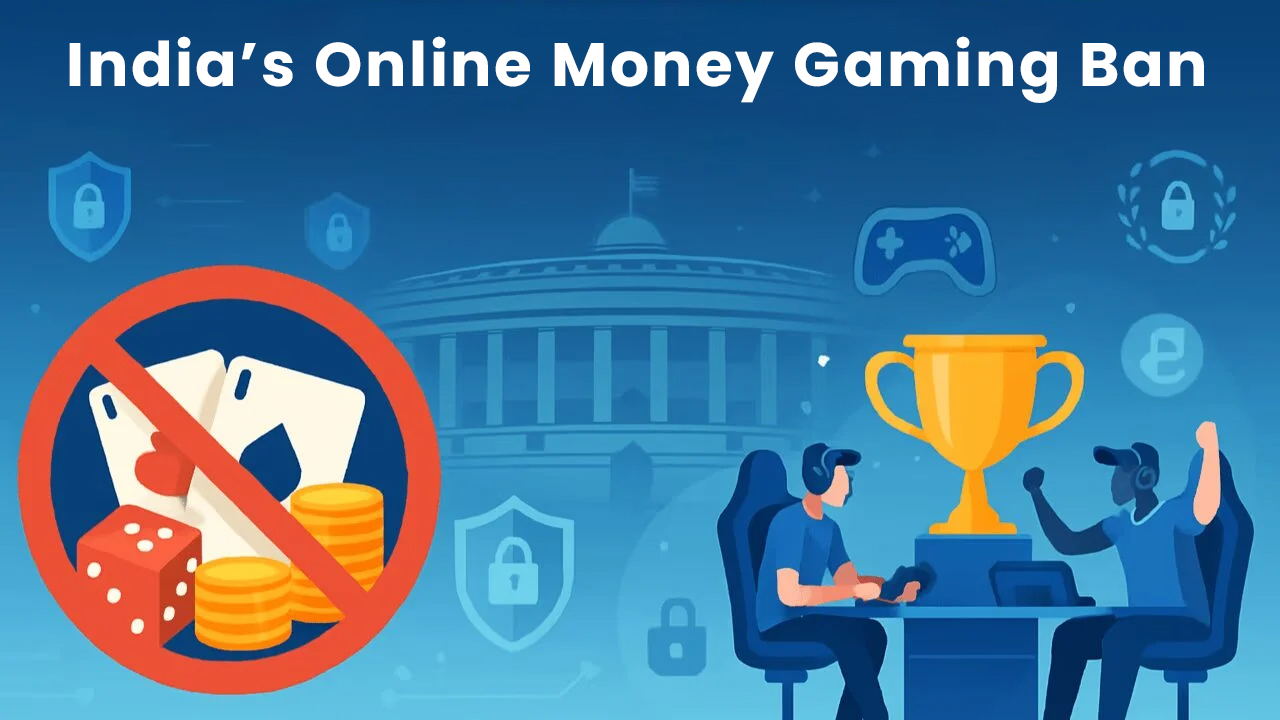India’s Online Money Gaming Ban (2025):
India’s Online Money Gaming Ban (2025):
Executive Summary
• India has enacted a nationwide ban on online money games (including both games of skill and games of chance).
• Advertising, promotion, and payment processing for such games are also prohibited.
• An Online Gaming Authority is envisaged for oversight and enforcement.
• Multiple legal challenges are already in motion; enforcement and transition rules will evolve rapidly.
Bottom line: If your product involves entry fees, deposits, or cash rewards, you must pause India-facing operations, secure user funds, and implement a legal/technical wind‑down and communications plan immediately.
1) The Big Picture
For over a decade, online gaming in India sat in a gray zone: states regulated “betting and gambling” while courts carved out a protected space for “games of skill.” In 2025, the Union has stepped in with a central law that prohibits online money games across the country, cutting across the earlier state‑by‑state patchwork.
Why now?
•Rising concerns over addiction, financial harm, and misleading advertising.
•A brewing tussle over GST at 28% on full face value and retrospective tax demands that rattled the sector.
•Political pressure to draw a bright line between harmless play and predatory real‑money products.
2) What Exactly Is Banned?
Scope: Any online game (skill or chance) that involves money—entry fees, stakes, deposits, bets, or cash‑out rewards.
Channels: Websites, apps, and any internet‑connected device.
Ancillary activities: Advertising, promotion, sponsorships, influencer campaigns, affiliate links, and payment facilitation (cards, UPI, wallets, bank transfers) related to banned games.
Platform blocking: Authorities may direct ISPs, app stores, and intermediaries to disable access.
Not typically covered: Esports and purely free‑to‑play titles with no monetary stakes or cash rewards. (Cosmetic IAPs without prizes are generally out of scope.)
3) Immediate Action Checklist (for Operators & Partners)
1.Pause India user acquisition and disable pay‑ins/payouts for India‑based users.
2.Segregate and safeguard user funds; communicate withdrawal/closure timelines.
3.Suspend advertising (including influencer and affiliate programs) targeting India.
4.Geo‑fence India IPs and billing instruments; audit app‑store targeting and distribution.
5.Notify counterparties (payment gateways, processors, publishers, teams, leagues).
6.Data & records: Preserve KYC/AML, tax, and transaction logs for audits and litigation.
7.Customer comms: Publish clear FAQs, timelines for withdrawals, and support escalation.
8.Board & investors: Prepare risk memos on legal exposure, tax provisions, and wind‑down costs.
9.Employment & vendors: Issue notices, renegotiate, or terminate India‑facing contracts in line with law.
4) Federalism, Skill vs. Chance & Constitutional Fault Lines
Historically, states controlled gambling, while courts protected bona fide skill games (e.g., rummy, fantasy sports). The 2025 ban collapses that distinction for online formats. Expect constitutional challenges arguing:
- Right to trade/occupation for legitimate skill‑based businesses.
- Federal competence (State List vs. central powers over digital intermediaries and commerce).
- Proportionality and freedom of expression (ad bans).
Takeaway: The law could evolve through court rulings and clarificatory rules. Don’t assume today’s ban will look identical a year from now—but plan for strict compliance right now.
5) GST & Tax Overhang (What Doesn’t Go Away)
• Since 2023, online gaming has faced 28% GST on full face value (not merely platform fees).
• Large retrospective notices (2017 onward) remain a material risk for balance sheets.
• The ban does not itself resolve legacy tax disputes; finance and litigation strategies remain critical.
6) What Remains Viable in India?
•Esports without entry fees or cash prizes (brand sponsorships, media rights still possible—subject to ad/content norms).
•Free‑to‑play games with cosmetic/in‑app purchases but no cash rewards.
•Skill training & casual games communities (no stakes, no payouts).
•Enterprise tech: game engines, tools, outsourcing studios, art/QA—low regulatory risk if not facilitating money games.
7) Risk‑Mitigation Playbook
• Product: Offer a non‑monetary India build (no deposits, no prizes).
• Payments: Hard‑block India BINs/UPI; disable wallet top‑ups; monitor for circumvention (VPN, foreign cards).
• Marketing: Maintain a zero‑tolerance ad policy; pre‑clear creative and keyword lists.
• Governance: Constitute an internal compliance committee reporting to the board; track enforcement notices and court orders weekly.
• Engagement: Participate (via industry bodies) in consultations on transition rules and esports promotion.
• Contingency: Stand up a claims & refunds desk for stranded balances; maintain a regulator‑ready communications log.
8) For Investors & Strategic Buyers
• Diligence checklists must now include: user‑funds segregation, open tax matters, pending writs, dependency on India revenue, and change‑of‑law clauses.
• Reassess valuations of India‑centric RMG assets; scenario‑model outcomes of ongoing litigation.
• Focus on export‑only studios and esports IP as comparatively safer bets.
9) What to Watch Next
• High Court & Supreme Court challenges to the blanket ban.
• Subordinate rules (grace periods, user‑fund withdrawals, Authority composition).
• Payment‑rail enforcement via banks, card networks, UPI, and gateways.
• State‑level moves aligning lotteries/casinos policy with the new central regime.
MLegal can help with rapid compliance diagnostics, user‑funds wind‑down, ad‑tech audits, payment‑stack reconfiguration, and litigation strategy.



